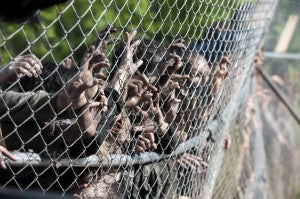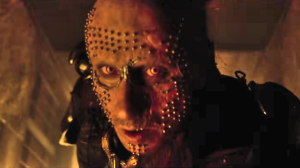This is the second in our series of spoiler-free early review of AMC’s The Walking Dead, Season Four. For our thoughts on the season premiere, follow this link.Following on the heels of a promising, but not exactly overpowering, season premiere, the ante is upped in a big, bad way in the second episode of The Walking Dead‘s fourth season, titled “Infected.”It’s easy, from the outside, to assume that the title refers to the zombie contagion. Leaving aside the fact that becoming symptomatic is the worst nightmare of every character on the show, we have the fact that Rick and his group know that everyone is infected–when you die, you turn.We don’t yet know if that’s something that they’ve shared with the stragglers they’ve picked up from Woodbury and elsewhere in the makeshift community they’ve put together in the prison at the start of this season, but one thing is clear: they’re going to find out. A non-bite-related death occurs this episode to a character who is isolated from walkers. No bite on that guy, but he turns nevertheless.He isn’t the only one, either; just the most obvious example. This episode injects the action that the premiere was largely missing, and does so in a way that projects the plot forward.There’s a B plot in this episode, too, and it’s one that’s far more intriguing than last week’s various romances. There’s an enemy within, to borrow a previous episode title, and it’s not clear who it is or to what end they’re acting–but if not for the generalized threat presented by the episode’s major development in Cell Block D, that sub-story could very well overtake the show.











